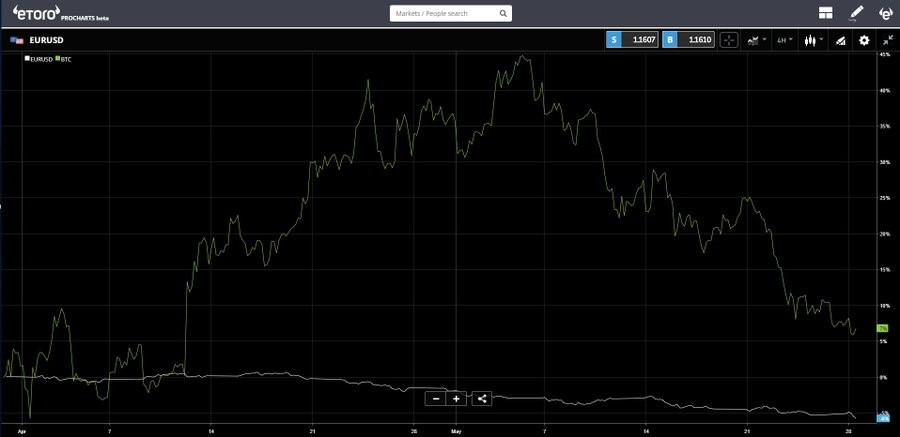Argentina’s current economic troubles are likely to get worse before they get better. And with the second highest inflation rate in South America, behind Venezuela, the case for Bitcoin is becoming stronger.
Argentina is a country rich with culture, natural beauty, and resources; however, especially in recent years, it has been plagued with economic struggles and populist policies which have left one in three of its capital citizens in poverty.
Since 2001, Argentina has been largely shunned by international investors, but things finally began to look up when President Mauricio Macri took power in 2015. The country paid down some of its debts, even began selling 100-year yield bonds, and investors ate them up.
Now, less than a year later, a strong U.S. dollar (USD), rising interest rates worldwide, and some questionable moves from the administration and central bank, have all contributed to Argentina once again turning to the International Monetary Fund (IMF) for a bailout—a move which has received a lot of political backlash, as many Argentinians still blame the fund for the country’s economic downturn during the early 2000s.
As it stands, Argentina’s current economic troubles are likely to get worse before they get better. And with the second highest inflation rate in South America, behind Venezuela, the case for Bitcoin is becoming stronger.
The USD
Historically, Argentinians looked to the USD to maintain their wealth in the face of rising inflation, but a policy change initiated by ex-President Cristina Fernández de Kirchner made it impossible for citizens to access USD, outside of the black market, in order to secure the central bank’s reserves of the currency. Under de Kirchner’s laws, capital flight from Argentina plummeted, though many citizens still went to great lengths to secure dollars: some even traveling to Uruguayan casinos, not to gamble, but to buy chips and convert them to USD. Related: The Stock Market Is Defying A Strong Jobs Report
Though President Macri has eased up on these controls, the Argentine peso has plummeted since he took power.

(Click to enlarge)
Source: Quartz
While trying to defend the peso, the government may have incidentally accelerated its fall in early May, with a series of interest rate hikes that shattered international investors’ confidence in the currency.
Edward Glossop, Latin America economist at Capital Economics noted: "This crisis looks set to continue unless the government steps in to reassure investors that it will take more aggressive steps to fix Argentina's economic vulnerabilities.”
Now, the country is looking to the IMF for $30 billion in relief—a move that will likely threaten President Macri’s political and fiscal agenda.
Can Bitcoin help?
Because Bitcoin is a currency free from government manipulation and is globally transferable, it can offer citizens a hedge against instability and inflation: as it has in Venezuela. Nathaniel Popper stated:
Citizens of countries such as Argentina, whose governments have a near perfect track record of debasing their own currency and destroying the savings of their citizenry, have shown signs of preferring bitcoin to their own state’s money.
Bitcoin penetration in Argentina is relatively low compared to other Latin American countries, though it is gaining speed. Recently, the central bank even eased regulations that prevented independent companies from installing cash machines, sparking an influx of new bitcoin ATMs in the country.
Additionally, in a world first, Argentina’s Banco Masventas ditched SWIFT, an international standard in money transfer, in favor of Bitcoin for cross-boarder transfers.
These moves, along with a wobbly regulatory landscape in neighboring Latin American countries have put the spotlight on Argentina for crypto-businesses in the region, with exchanges such as Buda.com expanding into the country.
Pablo Chávez, general manager of Buda.com, explained: “It is a relevant market not only for obvious reasons, such as its size, but also because it has a large community around cryptocurrencies…Argentina has the potential to become our most important market in the course of a year.”
With the Argentine peso continuing to slip, it’s clear to see why Bitcoin usage is accelerating. And because of its relaxed regulatory stance, it's a hopeful market for potential crypto-entrepreneurs. Related: Silver Stocks Continue To Struggle
Though Argentina typically follows the United States and Europe in regard to policy changes, President Mauricio Macri campaigned on the promise of embracing tech, so there are no regulatory crackdowns in sight, at least for now.
Lessons to learn?
While Argentina struggles to figure out its next move, another potential crisis is unfolding on the other side of the world. Italy, the Eurozone’s third largest economy, is also falling into a populist tailspin, threatening to pull the European Union down with it. And though the power of Bitcoin does not lie in its price, it did see a welcome (though short lived) rally, as Italy flooded global headlines.
Just for the fun of it. Here's a graph comparing Bitcoin to the Euro since the beginning of April.

(Click to enlarge)
As of late, safe-haven assets seem to be missing out on the geopolitical risk factor; yet, one can’t help but wonder how a decentralized, digital, and global currency might be able to change a world wrought with currency woes.
By Michael Kern via Crypto Insider
More Top Reads From Safehaven.com:
















